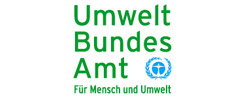The 8th International HVH and Pesticides Forum
A short summary on the results of the forum in Sofia, Bulgaria.
01.06.2005 |Margriet Samwel


A poster on a case study of cleaning up an obsolete pesticide dump.
The theme of this Conference was practices of Environmentally Sound Management (ESM) of cleaning-up obsolete stockpiles of pesticides in Central European and EECCA Countries.
The forum discussed national and regional strategies, actions plans and financial resources for elimination of persistent organic pollutants (POPs) and obsolete pesticides. This included exchange of technologies and experiences for inventory, risk assessment, environmentally sound management, storage and destruction of obsolete pesticides and contaminated soils. Many representatives of Ministries, NGO's and Institutes gave presentations at the forum.
WECF was represented by it's Water and Agriculture coordinator Margriet Samwel, and by the Director of Armenian Women for Health and a Healthy Environment, Elena Manvelian. AWHHE is the only organisation which has so far carried out concrete projects on finding sollutions to obsolete pesticides in Armenia, see their website (in English) at: http://www.awhhe.am/ipen_pwg.html

Old pesticides left lying on the ground in an old shed in Ukraine.
Ticking time bombs; Large quantities of banned, unwanted and obsolete pesticides
In particularly in developing and transition countries like Central and Eastern Europe, the Newly independent States or Africa, there are large quantities of banned, unwanted and obsolete pesticides or other hazardous industrial or medical chemicals such as PCB's.
In the countries of Central Europe and EECCA, where the conference in Sofia focussed on, thousands and thousands of tonnes of obsolete pesticides and other hazardous chemicals are stored in complete unappropriate premises or just dumped or buried in soil.
Sometimes the local authorities have a vague idea which substances are stored. In many cases the local authorities have no information on the location or the constitution of the obsolete stockpiles. Packages are broken and leaking, reservoirs are corroded and toxic substances are leaking into soil, groundwater and evaporating into the air.
Many of these obsolete pesticides are POPs Persistent Organic Pollutants . These are described and included in the Stockholm Convention on POP's. To the most dangerous POP's belong pesticides such as aldrin, chlordane, DDT, dieldrin, endrin, heptachlor, mirex, hexachlorobenzene, toxaphene, and polychlorinated biphenyls, but also PCBs. POPs migrate globally (via air, foodchain) and can cause damage wherever they travel.

Sophisticated containers for storing old chemicals.
In the Ukraine it is estimated that in 2005 there existed 20.000 tons of prohibited and obsolete pesticides; with over 2000 tons belonging to the POP's.
In Georgia the POP´s inventory identified 206 sites with 160 tons POP's found mostly in unprotected buildings.
In Uzbekistan there are 1500 tons of obsolete pesticides identified, but 17.718 tons of banned and obsolete pesticides were kept in 13 underground storages since 1972. these underground storages are partly impossible to visit without protection. They cause groundwater pollution and air pollution by explosions.
Scientist believe that the quantity of identified obsolete pesticide stockpiles should be multiplied with two or in some countries even with five to get the realistic amount of obsolete pesticides.
Efforts on elimination of obsolete pesticide stockpiles
To find solutions to the obsolete pesticide problems important steps have been taken.
The Stockholm convention includes strategies and measures regarding the elimination of POPs.
The FAO has guidelines on how to handle obsolete stockpiles, see http://www.fao.org/WAICENT/FAOINFO/AGRICULT/AGP/AGPP/Pesticid/Disposal/index_en.htm.
Under GEF/UNEP (global environment facility) projects are going on for searching appropriate technologies for treatment of these toxic substances.
The Sofia conference made clear that these are good instruments for the countries concerned, but that there is a lack of implementation. This is mainly caused by lack of local, national and international awareness and commitment. In particular, not enough financial support is available.
The donor countries are not enough aware of the dramatically situation in several countries or not willing to support the concerned countries.
More awareness is needed
Conventions alone are not sufficient. Local awareness raising and local initiatives are needed, which focus on the topic of obsolete stockpiles. Cooperation on local, national and international level between citizens, policy and experts is needed to find appropriate solutions.
The common solutions to eliminate the stockpiles or to minimize the environmentally pollution are:
- Repacking the pesticides in plastics or containers (depending on the substance) and restore in an safer storage place
- Repacking and transport to an incineration plant e.g. in Austria, the Netherlands or Germany.
In Bulgaria local initiatives initiated the cleanup of an obsolete pesticide stockpile. With the support of government and companies, a safe storage of old repacked pesticides in special constructed containers was developed. The conference included a field visit near the village Ravnishte, where the participants had the occasion to see a storage place of repacked obsolete pesticide in so called B-B cubes from BalBok Engineering Co. A cube (container) can store 5 cubic meter wastes.
In the meantime 70% of obsolete pesticides found in Bulgaria have been repacked and stored in these containers. However, 4000 tons of known obsolete pesticides are still left.
Recommendations
Mr. Mark Davis, representative of the FAO on the 7th and 8 th International HCH and Pesticides Forum, gave the following recommendations:
Take note of the causes of obsolete pesticides
Make prevention a priority
Develop effective solution
Avoid the root causes of the problem by reducing reliance on pesticides


































